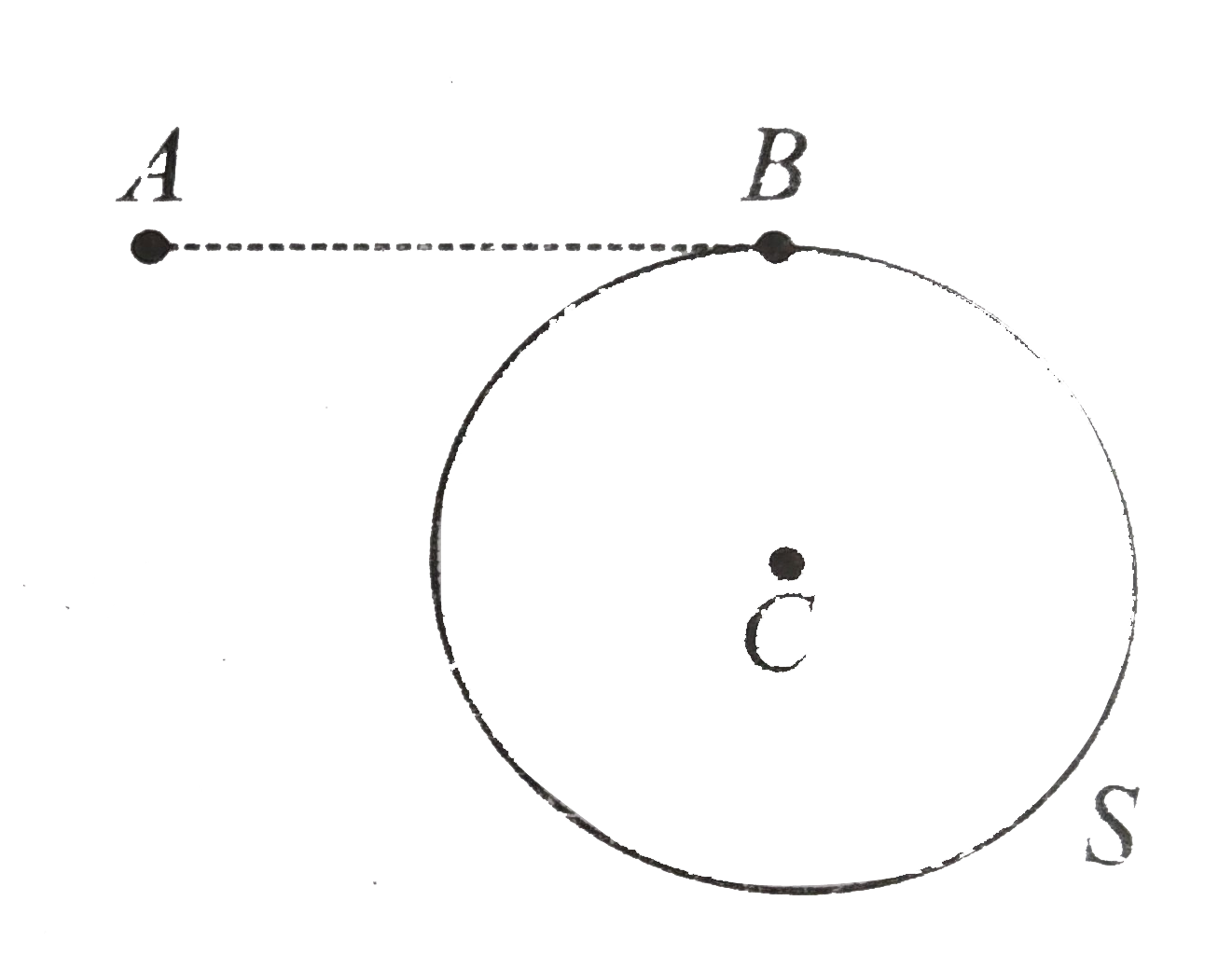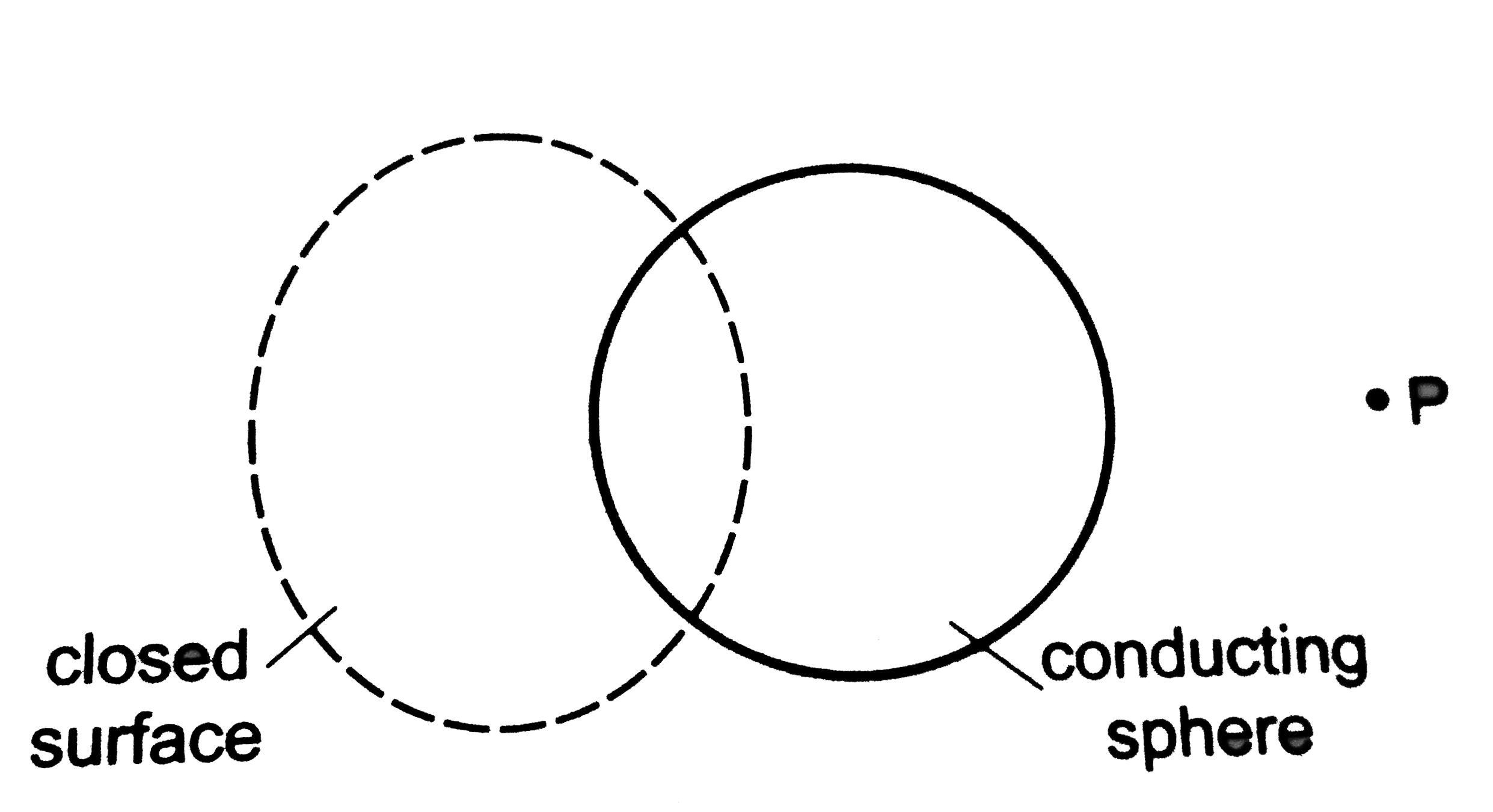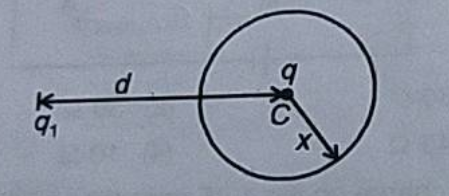Consider a neutral conducting sphere. A positive point charge is placed outside the sphere. The net charge on the sphere is then
negative and distrubuted uniformly over the surface of the sphere
negative and appears only at the point on the sphere closest to the point charge
negative and distributed non-uniformly over the entire surface of the sphere
zero
The correct Answer is:D
Charge will be induced in the conducting sphere, but net charge on it will be zero.
Topper's Solved these Questions
- MISCELLANEOUSBOOK - ALLENCHAPTER - MISCELLANEOUSEXERCISE - MCQ s WITH ONE OR MORE THAN ONE CORRECT ANSWER
6 Videos
- MISCELLANEOUSBOOK - ALLENCHAPTER - MISCELLANEOUSEXERCISE - REASONING TYPE
1 Videos
- MISCELLANEOUSBOOK - ALLENCHAPTER - MISCELLANEOUSEXERCISE - Exercise-05(A)
35 Videos
- KINEMATICS (MOTION ALONG A STRAIGHT LINE AND MOTION IN A PLANE)BOOK - ALLENCHAPTER - KINEMATICS (MOTION ALONG A STRAIGHT LINE AND MOTION IN A PLANE)EXERCISE - BEGINNER S BOX-7
8 Videos
- PHYSICAL WORLD, UNITS AND DIMENSIONS & ERRORS IN MEASUREMENT BOOK - ALLENCHAPTER - PHYSICAL WORLD, UNITS AND DIMENSIONS & ERRORS IN MEASUREMENT EXERCISE - EXERCISE-IV
8 Videos
Similar Questions
Conisder a neutral conducting sphere. A poistive point charge is placed outisde the sphere. The net charge on the sphere is then
View SolutionConisder a neutral conducting sphere. A poistive point charge is placed outisde the sphere. The net charge on the sphere is then
View SolutionA positive point charge q is brought near a neutral metal sphere.
View SolutionA conducting sphere carrying charge Q is surrounded by a spherical conducting shell.
a. What is the net charge on the inner surface of the shell?
b. Another charge q is placed outside the shell. Now, what is the net charge on the inner surface of the shell?
c. If q is moved to a position between the shell and the sphere, what is the net charge on the inner surface of the shell?
d. Are your answer valid if the sphere and shell are not concentric?
View SolutionS is a solid neutral conducting sphere. A point charge q of 1×10−6C is placed at point, C is the center of sphere, and AB is a tangent. BC = 3 m and B = 4m.

View SolutionFigure shown a closed surfce which intersects a conducting sphere. If a positive charge is placed at the point P, the flux of the electric field through the closed surface

View SolutionFigure shown a closed surface which intersects a conducting sphere. If a positive charge is placed at the point P, the flux of the electric field through the closed surface

View SolutionConsider two concentric conducting spheres. The outer sphere is hollow and initially has a charge −7Q on it. The inner sphere is solid and has a charge +2Q on it.
a. How much charge is on the outer surface and inner surface of the outer sphere.
b. If a wire is connected between the inner and outer sphere, after electrostatic equilibrium is established how much total charge is on the outer sphere? How much charge is on the outer surface and inner surface of the outer sphere? Does the electric field at the surface of the inside sphere change when the wire is connected?
c. We return to original condition in (a). We now connect the outer sphere to ground with a wire and then disconnect it. How much total charge will be on the outer sphere? How much charge will be on the inner surface and outer surface of the outer sphere?
View SolutionInside a neutral hollow conducting sphere of radius X and centre C, a point charge q is placed as shown in the figure. Another point charge q1, is placed outside the sphere at distance d from centre. The net- electrostatic force on charge q placed at the centre is K=14πε0

View Solution
consider a neutral conducting sphere of radius a with a spherical cavity of radius b. A charged conducting sphere of radius c is placed in cavity . Centre of this sphere coincide with centre of cavity charge on the inner sphere is q total self energy of this arrangement is:
View Solution
